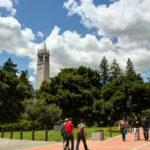Extracurriculars for History Majors: Real Students’ Stories
This article is based on first-person accounts from Araceli Arizpe, a senior at Middlebury College; Ellen Li, a senior at Brown University; Matt Nadel, a junior at Yale University; and Moriah Kofsky, a graduate of the University of Pennsylvania. You can watch the full livestream for more info.
What’s Covered
In this post, we hear from current college students about high school extracurriculars for potential history majors. If you’re considering this major, check out this post about the 15 best colleges for majoring in history.
History Major Extracurriculars
Moriah: How can students demonstrate their interest in history through extracurricular activities? What extracurriculars were you involved in during high school?
Matt: I arrived at history in a kind of unconventional way, and I like to study history in an unconventional way, by making documentaries. My main interest in high school was film, but I didn’t make a documentary until I came to Yale. I didn’t even put two and two together—that film could be used through a historical lens.
I also did debate in high school, which definitely felt related to history. During my first two years of high school, I did congressional debate, and during my last two years, I switched to speech and did original oratory. I found that to be great practice for majoring in history because I was reading sources all the time, trying to get a sense of each issue. I’d be finding out what happened with America’s relations with a particular country or the regulation of a substance or the Latin American stance on a specific issue, just so I could speak intelligently about the topic in a quick manner.
Having not come from a private or college prep background, when I arrived at Yale, there were people around who had a deeper knowledge of history than I did. I think that debate gave me an extracurricular sample of the things that I hadn’t been as exposed to, like world history classes or a more global English curriculum.
My school also had a history honor society; I was a member, though not an officer. That is definitely one way to get more involved in history at the high school level. If your school doesn’t have a society, maybe you could start one. Once you get to the college level, many schools have undergraduate historical reviews where undergrads can peer review and publish work. That’s a cool thing to do with a thesis or big term paper that you’ve worked hard on.
Araceli: I came from a small school. My graduating class was around 33 girls, so we didn’t have many clubs or organizations. But I did debate in an outside program that focused on the Latinx community, particularly Latinx- and Chicanx-directed policies.
I found that this helped me fixate my research on my own community and learn about different historical events that I could use in my arguments.
We didn’t have one at my school, but another extracurricular that could be helpful for developing a passion for history would be a school newspaper. There are many ways that you can research different archives within your school or your town. In my college, many history majors work for my college’s newspaper, writing pieces about the school’s history.
I was also involved in academic decathlon. That was incredibly helpful in developing research skills, particularly reading primary sources. A significant amount of reading is involved when you’re a history major, so that practice definitely helped me create the skills necessary to study in this field.
Ellen: I’m going to give different opinions. Sometimes we think, especially when applying to college, that demonstrating interest in your major is everything. While it is important, I don’t recommend that you do things just for the sake of making it look like you do things. Everyone’s interests grow over time, and sometimes you don’t come to certain ideas until you develop both intellectually and as a person.
Many people are undecided, even when they get accepted. I think that 60% of Brown students change their minds about their majors. So, demonstrating interest is important because it helps you figure out where you want to go, but it’s not the be-all and end-all.


